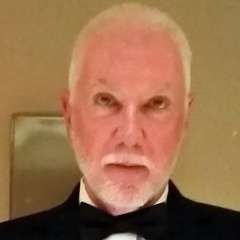In weaving this week’s Atlanta Symphony Orchestra concert, there seems to be several key threads: local talent played a large role in the program; the major works were written in the early part of the 20th century; and all of the works require a really large orchestra.
Oliver Knussen’s Flourish with Fireworks is a big, but slight piece. It’s a great way to start a concert, grabbing attention, but not requiring too much mental investment while patrons are still trying to become comfortable and clearing their throats. Based on this work, Knussen seems to believe that if something can be plucked, it should be plucked; if something can be struck, it should be struck; and if something can be loud, it should be loud. The ASO and Robert Spano did a bang-up job in a performance full of high energy and flash.
Scriabin's Prometheus, Poem of Fire is a curious piece. The symphony was written for an extremely large orchestra and an optional chorus not included in this performance. It was also written to include a color organ, which was designed to light up the auditorium with colors related to the music. Scriabin had designed a system where each musical key was assigned a color, based upon the composer’s notion of the relationship between feeling the note supposedly conveys and a color. Some have suggested that the composer could see colors (synesthesia) but the consensus seems to be that was more hype than fact. It would have been fun to see the color organ employed in this concert, but it was not. Scriabin, like many of his fellow countrymen, was taken with “theosophy”, a system of thought that led the composer to believe that his works were of divine creation and a sort of synthesis of matter and spirit. In fact, the composer believe that if his Poem of Ecstasy, Prometheus and his final, but uncompleted work, Mysterium were heard at one setting, the results would be cataclysmic.
Because Prometheus calls for an extremely large orchestra, Spano commissioned ASO bassist and composer Michael Kurth to re-orchestrate it for a smaller (but still large) orchestra. In a pre-concert lecture, Kurth said that he mostly did away with Scriabin’s doubling or tripling of instruments, changing the dynamics accordingly so the work did not sound substantially different from the full orchestration. Another unusual aspect of this symphony is the inclusion of a solo piano part, not as in a piano concerto, but rather as another instrument in the orchestra, with the piano situated in front of the orchestra. The soloist was pianist Elizabeth Pridgen who is well-known to Atlanta audiences through her affiliation with the Townsend School of Music at Mercer University, and her music directorship of the Atlanta Chamber Players. Pridgen was a perfect choice as soloist because she plays with an extraordinarily large, perfectly controlled sound. She easily held her own when the orchestra was playing tutti, yet she was remarkably subtle when playing solo. Her intensity and concentration at the keyboard were overt and she was a treat to watch. The music is full of ideas and a new one seems to be introduced every dozen or so measures. It is like an amorphous blob, full of foreboding and dread. This performance of Prometheus was top tier.
Prokofiev’s beautiful Violin Concerto no. 1 in D major featured ASO concertmaster, David Coucheron. It's a lean, transparent and structured piece, hinting at the composer’s more adventuresome works to come. This was one of Mr Coucheron’s most successful solo turns with the orchestra and his bold, yet sweet tone fitted this music well. His wonderful muted playing in the second movement was beautifully complemented and supported by Spano.
The final work on the program was Stravinsky’s 1910-1919 revision of the suite from the ballet The Firebird. This was a handsome performance, with special kudos going to newly appointed Assistant Concertmaster Justin Bruns for his shimmering solos, and also to the bassoon section for some truly fine playing. This was one of those performances where nothing was errant; it was a joy.
Overall this was a great concert, with outstanding soloists, an interesting program and engaging performances. Thanks to all involved.


